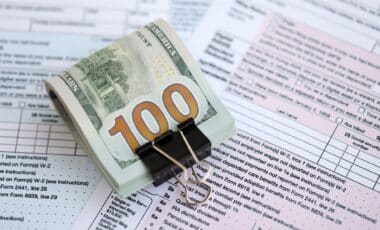From December, millions of households in the UK will face an additional financial burden, losing up to £500 per month. This situation is expected to persist until 2027, as rising mortgage costs continue to squeeze families already struggling with inflation and the broader economic crisis. However, there is hope. This is not the end of the road, and solutions are available to help alleviate the pressure on households.
A Shockwave for UK Households
The warning has been issued: starting in December, millions of Britons will face significant increases in their monthly payments. According to the latest forecasts from the Bank of England, around 4.4 million households will need to refinance their mortgages at rates above 3% by 2027, which accounts for about 31% of households. For many, this means increases of over £500 per month, a substantial amount that could destabilise already stretched family budgets.
Those most affected will be households whose mortgages are up for renewal, who will bear the brunt of the rise in monthly payments. Among them, approximately 420,000 households will face an additional £500 per month by 2027. While this may seem like a manageable figure to some, it represents a serious financial challenge for families already grappling with rising living costs.
Mortgage Increases: Who Will Be Hit the Hardest?
The impact of these hikes will be even more pronounced for those who have already experienced an initial interest rate rise in 2021. For 1.5 million households, a second increase in monthly payments is now inevitable. These families could find themselves trapped in a cycle of financial hardship. Yet, this situation is not set in stone. There are ways to navigate these increases, and experts recommend reassessing mortgage options to better manage costs.
For those moving from a fixed-rate mortgage to a variable one over the next few years, monthly payments could rise by at least £146. While this figure may seem modest, it adds up to a considerable burden for families already struggling to balance their finances.
Here’s a breakdown of the expected increases:
- 420,000 households will see their payments rise by £500 per month by 2027.
- 31% of households will need to refinance their mortgages at rates above 3% by 2027.
- On average, £146 extra per month for those transitioning from fixed-rate mortgages.
The cumulative effect of these increases could be overwhelming for many households, and some may find themselves unable to keep up with their mortgage payments if the situation continues. But experts believe that with the right financial planning, it is still possible to mitigate the negative effects.
Lenders: A Welcome But Inadequate Support?
Although the Bank of England reassures Britons by stating that lenders are prepared to offer support, the reality seems less clear. Richard Lane, director of the charity StepChange, has highlighted the growing concerns of borrowers. He points out that more and more households are reaching the point of default. This issue is compounded by the fact that inflation remains well above the 2% target, and interest rates continue to rise.
Despite lenders’ promises of support, mortgage arrears are on the rise, and the solutions offered by banks appear insufficient in light of the scale of the crisis. Richard Lane warns of an increase in defaults, which could worsen if the economic situation does not improve swiftly.
Banks, for their part, claim to be ready to offer forbearance options to struggling borrowers, but the results remain to be seen. Are lenders truly capable of managing the situation without leaving too many households facing defaults? The answer remains unclear, and this uncertainty adds another layer of insecurity for millions of households potentially heading into financial distress.









